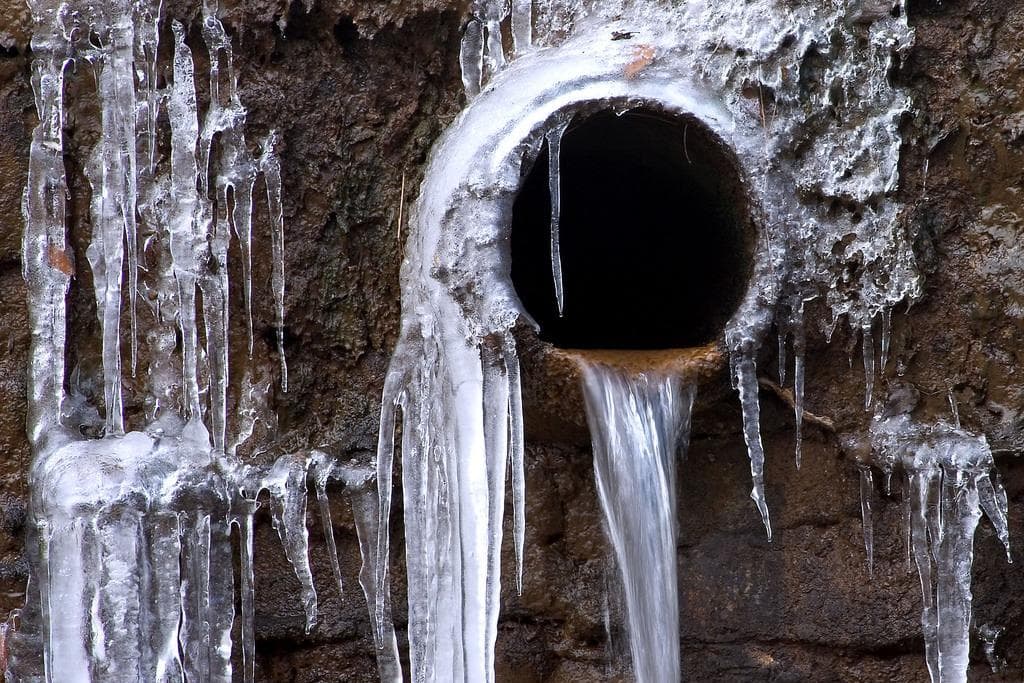Important Advice to Avoid Frozen Plumbing in Winter
Important Advice to Avoid Frozen Plumbing in Winter
Blog Article
The article following next about Prevent Frozen Pipes is extremely compelling. You should keep reading.

Cold weather can damage your plumbing, particularly by freezing pipes. Below's just how to prevent it from taking place and what to do if it does.
Intro
As temperatures drop, the danger of frozen pipes boosts, potentially causing expensive repair work and water damages. Recognizing exactly how to avoid icy pipelines is important for property owners in cool climates.
Recognizing Frozen Pipes
What triggers pipelines to ice up?
Pipes freeze when subjected to temperature levels listed below 32 ° F (0 ° C) for expanded durations. As water inside the pipelines ices up, it expands, putting pressure on the pipe walls and possibly causing them to rupture.
Risks and damages
Icy pipes can lead to water system disturbances, residential or commercial property damage, and expensive repair work. Burst pipelines can flood homes and cause extensive architectural damage.
Signs of Frozen Piping
Determining frozen pipelines early can prevent them from breaking.
How to recognize icy pipelines
Seek lowered water circulation from taps, uncommon smells or sounds from pipelines, and noticeable frost on subjected pipes.
Prevention Tips
Insulating vulnerable pipes
Cover pipelines in insulation sleeves or utilize heat tape to protect them from freezing temperature levels. Concentrate on pipes in unheated or exterior locations of the home.
Heating techniques
Maintain interior spaces adequately warmed, particularly locations with plumbing. Open up cupboard doors to allow cozy air to circulate around pipelines under sinks.
Protecting Exterior Plumbing
Garden hoses and exterior faucets
Disconnect and drain yard hoses before winter. Mount frost-proof spigots or cover exterior faucets with protected caps.
What to Do If Your Pipelines Freeze
Immediate actions to take
If you believe icy pipes, keep faucets open to ease stress as the ice thaws. Make use of a hairdryer or towels soaked in hot water to thaw pipes slowly.
Long-Term Solutions
Structural changes
Take into consideration rerouting pipelines far from exterior wall surfaces or unheated areas. Add extra insulation to attic rooms, cellars, and crawl spaces.
Updating insulation
Purchase premium insulation for pipes, attic rooms, and wall surfaces. Proper insulation aids keep regular temperature levels and decreases the risk of icy pipes.
Verdict
Avoiding icy pipelines requires positive measures and quick reactions. By recognizing the causes, indications, and safety nets, property owners can shield their plumbing during winter.
Helpful Tips to Prevent Frozen Pipes this Winter
UNDERSTANDING THE BASICS: WHY PIPES FREEZE AND WHY IT’S A PROBLEM
Water freezing inside pipes is common during the winter months, but understanding why pipes freeze, and the potential problems it can cause is crucial in preventing such incidents. This section will delve into the basics of why pipes freeze and the associated problems that may arise.
THE SCIENCE BEHIND FROZEN PIPES
When water reaches freezing temperatures, it undergoes a physical transformation and solidifies into ice. This expansion of water as it freezes is the primary reason pipes can burst. As the water inside the pipe freezes, it expands, creating immense pressure on the walls. If the pressure becomes too great, the pipe can crack or rupture, leading to leaks and water damage.
FACTORS THAT CONTRIBUTE TO PIPE FREEZING
Low Temperatures: Extremely cold weather, especially below freezing, increases the risk of pipes freezing. Uninsulated or Poorly Insulated Pipes: Pipes located in unheated areas, such as basements, crawl spaces, or attics, are more prone to freezing. Insufficient insulation or lack of insulation altogether exacerbates the problem. Exterior Wall Exposure: Pipes running along exterior walls are susceptible to freezing as they encounter colder temperatures outside. Lack of Heating or Temperature Regulation: Inadequate heating or inconsistent temperature control in your home can contribute to frozen pipes. PROBLEMS CAUSED BY FROZEN PIPES
- Pipe Bursting: As mentioned earlier, the expansion of water as it freezes can cause pipes to burst, resulting in significant water damage.
- Water Damage: When pipes burst, it can lead to flooding and water damage to your property, including walls, ceilings, flooring, and personal belongings.
- Structural Damage: Prolonged exposure to water from burst pipes can compromise the structural integrity of your home, leading to costly repairs.
- Mold and Mildew Growth: Excess moisture from water damage can create a favorable environment for mold and mildew growth, posing health risks to occupants.
- Disrupted Water Supply: Frozen pipes can also result in a complete or partial loss of water supply until the issue is resolved.
WHY CERTAIN PIPES ARE MORE PRONE TO FREEZING
- Location: Pipes located in unheated or poorly insulated areas, such as basements, crawl spaces, attics, or exterior walls, are at higher risk of freezing.
- Exterior Pipes: Outdoor pipes, such as those used for irrigation or exposed plumbing, are particularly vulnerable to freezing as they are directly exposed to the elements.
- Supply Lines: Pipes that carry water from the main water supply into your home, including the main water line, are critical to protect as freezing in these lines can affect your entire plumbing system.
- Underground Pipes: Pipes buried underground, such as those connected to sprinkler systems or outdoor faucets, can be susceptible to freezing if not properly insulated.
https://busybusy.com/blog/helpful-tips-to-prevent-frozen-pipes-this-winter/

Do you really like reading up on How to prepare your home plumbing for winter weather? Leave feedback below. We will be happy to find out your responses about this blog entry. Hoping that you come back again in the near future. Be sure to set aside a second to distribute this entry if you liked it. We truly appreciate reading our article about Helpful Tips to Prevent Frozen Pipes this Winter.
Click Here Report this page